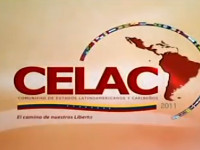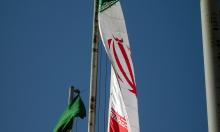The deeds of Hugo Chavez live and prosper
in Havana, thirty three countries of the American continent held the second summit of the Community of Latin American and Caribbean States (CELAC) that does not include the United States and Canada. The very fact of holding the forum in a country listed on the U.S. list of sponsors of terrorism says that the CELAC members are strongly opposed to the United States' policy.

CELAC was established in 2011 and brought together 33 countries of the region (all Latin American countries), and does not include the United States and Canada. 600 million reside on the territory of CELAC, and its total GDP was 5.2 trillion dollars in 2011. This is the first regional summit of "Our America," as it is called by its participants, after the death in March of last year of its organizer and inspirer Hugo Chavez. The forum started with a minute of silence in memory of the late President of Venezuela.
Cuban President Raul Castro said that CELAC was not just a formal meeting, but the overall vision of the great motherland of Latin America and the Caribbean. He noted that urgent consideration should be given to the creation of a single political space, a regional political consultation mechanism for strengthening the ties, and consolidation and integration of the Latin American peoples.
Castro said that the members were able to overcome all obstacles observing the necessary principles that included sovereignty and equality of the countries. Only then the countries would be able to say that Latin America and the Caribbean region no longer have the greatest inequality in the world.
The Cuban leader continued that regardless of the progress, we still lived in a world ruled by injustice and exceptional international order where there was a threat to peace and a threat of foreign intervention. He added that the long history of bloody coups and interventions could not be forgotten. The so-called power centers could not accept the fact that they have lost control of the wealthy region, he argued.
Raul Castro noted that the exposure of the global espionage system in 2013 was very important, and welcomed the initiative of Brazil to host a global meeting on Internet Governance in April of this year.
The Cuban leader criticized the high level of social inequality in the region, the lack of access to universal and quality secondary education. According to the Economic Commission for Latin America and the Caribbean (ECLAC), 10 percent of the wealthiest people in the region owned 32 percent of the total wealth, while the poorest 40 percent owned fifteen. He stated that child poverty that affected 70 million children caused the main concern. According to Raul Castro, CELAC has all necessary conditions to reverse the current situation. The main lever is sovereignty over natural resources that are an export commodity and source of budget revenues.
Raul Castro continued that there was an opportunity and methodology to eradicate illiteracy. According to ECLAC, 50 percent of young people in the region age 20 to 24 did not complete secondary education. Among the poor, only 21.7 percent graduated from secondary school. In contrast, among the wealthy this number is 78.3.
The Cuban leader condemned the U.S. protectorate over Puerto Rico and supported Argentina in its efforts to regain sovereignty over the Falkland Islands. Raul Castro said that CELAC community would be incomplete without Puerto Rico. This Latin American nation was suffering from colonial domination. He reaffirmed full solidarity against Argentina over the Falkland Islands, and rejected any attempt to exploit the natural resources of the territory, including underground ones. He urged Britain to accept the offer of the Argentines and sit down to the negotiating table.
Castro also said that the forum supported Ecuador's lawsuit against Chevron that refused to pay compensation for the damage inflicted during the operation of oil fields in Ecuador. Castro accused international courts of neocolonial political vision.
Cuban President also proposed to declare Latin America and the Caribbean the "zone of peace" and thanked the partners for their support in the request to remove a 50-year blockade of the United States and reject the United States directive that listed Cuba as a country assisting terrorists. At subsequent meetings CELAC expressed support for the Colombian peace dialogue and creation of China-CELAC forum.
We can conclude that the attempts of the U.S. to isolate Cuba have failed. This Caribbean country chaired the CELAC and hosted the summit, which is a certain proof of the restoration of the relations with all countries in the region. But will it affect the U.S. in terms of the abolition of unfair decisions?
"Latin America has long become independent. Even the countries that have maintained good relations with the United States are not pro-American," told Pravda.Ru Michael Belyat, an independent expert on Latin America, a senior lecturer of the Department of Journalism RSUH. "Mexico, for example, is very dependent on the U.S. in financial and security issues, it is a party to the economic unification of NAFTA. Nevertheless, it has its own point of view on many foreign policy issues, and is not shy to express it in defiance of the United States. Creation of CELAC was a response to the U.S. pressure, to its hegemony in another forum - Association of American States (AOS).
I think CELAC, unfortunately, is unable to out serious pressure on the U.S. policy in the region. CELAC countries may express their dissatisfaction with some or other actions of Washington, but cannot change them. And yet, in the sense of foreign policy this conference is the voice against the things that Latin American countries do not accept in the U.S. policy. In addition, it is an opportunity to resolve common economic and social problems of the region, such as poverty and hunger."
Lyuba Lulko
Pravda.Ru
Subscribe to Pravda.Ru Telegram channel, Facebook, RSS!





